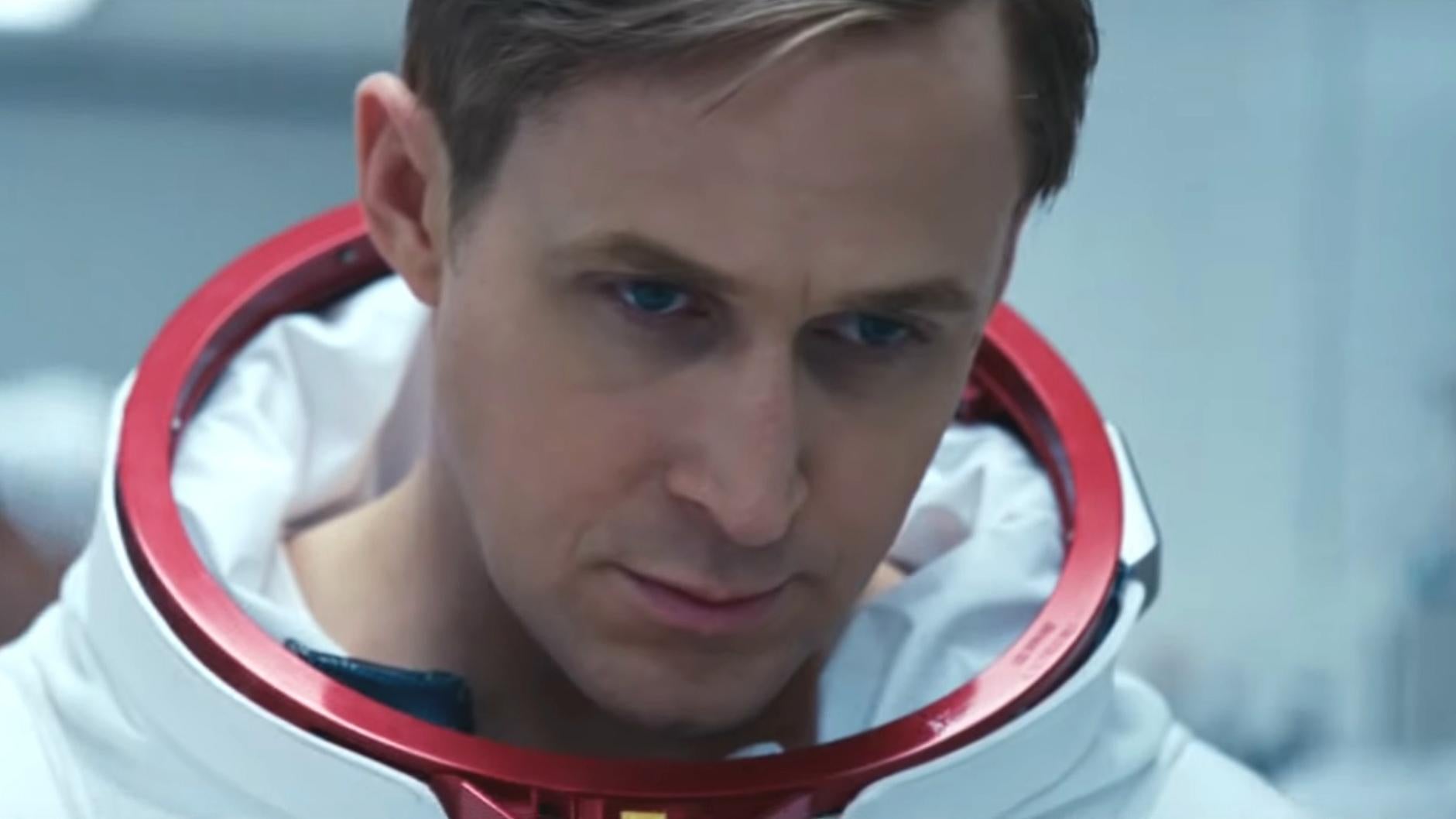The First Man problem: What to do when your film's real-life hero just isn't that interesting?
Neil Armstrong was a quiet, sensible, level-headed guy, which makes him perfect for flying a spacecraft but not a particularly enthralling movie protagonist
Your support helps us to tell the story
From reproductive rights to climate change to Big Tech, The Independent is on the ground when the story is developing. Whether it's investigating the financials of Elon Musk's pro-Trump PAC or producing our latest documentary, 'The A Word', which shines a light on the American women fighting for reproductive rights, we know how important it is to parse out the facts from the messaging.
At such a critical moment in US history, we need reporters on the ground. Your donation allows us to keep sending journalists to speak to both sides of the story.
The Independent is trusted by Americans across the entire political spectrum. And unlike many other quality news outlets, we choose not to lock Americans out of our reporting and analysis with paywalls. We believe quality journalism should be available to everyone, paid for by those who can afford it.
Your support makes all the difference.The moon landing was one of the most remarkable moments in human history, and yet First Man – in cinemas on Friday – manages to focuses on its more unremarkable aspects.
Whether it’s Apollo 13, Gravity or, most recently, Matt Damon “science-ing the s*** out of” sticky situations in The Martian, space movies have generally centred on the missions themselves, with the majority of the action taking place in-shuttle. So First Man director Damien Chazelle is right to want to instead focus on something else and spend more time on Earth getting to know the men and women behind the mission. But throughout the film’s 138 minutes, the message I kept receiving was probably not the one Chazelle intended: Neil Armstrong was just a regular guy.
And of course he was. Commanding a daring space mission requires keeping a cool head and making complex calculations. It’s not suited to a classic movie protagonist; there’s no room for mavericks and narcissists here. The film actually spells this out, with Armstrong undergoing psychological analysis – primitive though it was in the 1960s – at Nasa as part of his lengthy job interview.
Armstrong’s achievements were magnificent and he was obviously a smart and brave man. He was also somewhat quiet and reserved, and that’s fine – but the film doesn’t seem to know how to reconcile these facts.

“With a guy like Neil, who is so internal, how do you get under that?” First Man‘s screenwriter Josh Singer pondered. Their answer was to zero in obsessively on the death of Armstrong’s daughter Karen from a malignant tumour at the age of two. I’m sure this tragic event did weigh heavy on Armstrong’s mind throughout his life, but the film references it ceaselessly, viewing his entire career through the prism of this loss. In its most mawkish moment, the film takes artistic license and has Armstrong toss Karen’s bracelet into a crater near their lunar landing site, a moment that will no doubt remind you of that old lady at the end of Titanic.
Armstrong’s sons, Mark and Rick, were involved in the project right down to a script and post-production level for more than two years, so perhaps Singer and Chazelle did indeed home in on the correct aspects of the astronaut’s life. But, even if this is the case, First Man isn’t so much a subtle portrait of loss – as so many critics have painted it – but a barely perceptible one. Ryan Gosling is the master of brooding characters, but even he struggles to find an emotional resonance beneath Armstrong’s aloof facade here. It should be noted that Claire Foy does a lot of the legwork in this respect as a similarly tortured Janet Armstrong, and steals the film’s muted closing scene. But compared to a film like Manchester by the Sea, First Man feels, as an exploration of grief, pretty slight.
After the Apollo mission, the real-life Armstrong retreated somewhat from public life, and spent much of the rest of his life guarding his name. He sued Hallmark Cards for using the recording of his “one small step” quote in a Christmas ornament, blocked MTV from using it, and ended up in a legal dispute with his long-serving barber who secretly retained and sold a lock of Armstrong’s hair. He was the subject of a persistent hoax that he had converted to Islam (he, in fact, described his religious affiliation as simply “deist”) and in 1994 divorced his first wife, Janet. First Man only hints at the difficulties in his marriage, along with his discomfort with the extreme celebrity thrust upon him after returning to Earth, before the credits roll, and I can’t help but think the film would have felt more rounded if it had delved into them.
I have the utmost respect for Chazelle, who is one of the most gifted directors around and he executes the film’s action sequences in space expertly. But consider this: his last two films sang not because of the strength of their characters, but because of their craftsmanship and spectacle. Perhaps he just wasn’t the right director to tell what strains to be a human story.

Join our commenting forum
Join thought-provoking conversations, follow other Independent readers and see their replies
Comments